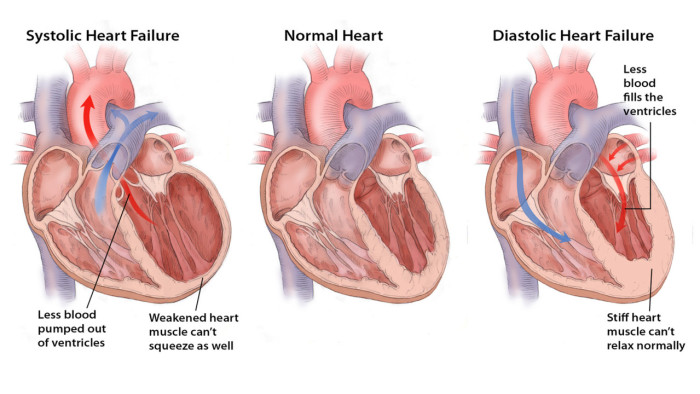Heart disease, women’s greatest health risk
Are you a woman? Do you smoke? Has any member of your family suffered from heart disease? Do you have hypertension? Are you obese? Are you diabetic? Do you have high cholesterol level?
Be objective and realistic with yourself: Instead of “rejecting it” or saying, “Not my portion”, review the questions and be factual in your response.
This is necessary because if you answer to at least three or more or all of these posers, then you’ve got to see a doctor immediately!
The truth is that any of these conditions, if present in an individual, could predispose to heart disease, especially for women.
While experts say men and women are at risks of developing heart disease, studies have shown that women have higher risks of developing this life-threatening condition more than men do.
Worse is the fact that when it comes to the risks of heart disease in women, age is no barrier.
According to Consultant Cardiologist, Dr. Victor Adeleke, nearly 90 percent of all women have at least one risk factor for heart disease. He adds that the low levels of oestrogen that women experience after menopause pose a significant risk factor for developing cardiovascular disease.
And for women of reproductive age such as a pregnant woman, they can develop heart disease through pregnancy complications such as high blood pressure or diabetes.
In general, experts say, extreme emotional stress can lead to severe heart muscle failure among women.
“Women fear breast or cervical cancer; but heart disease should be of much concern instead. This is because, while breast cancer affects one in eight women, heart disease affects one in three women,” Adeleke explains.
Diet and heart disease
A nutritionist, Dr. Remi Omotunde, warns that your dietary lifestyle will determine your heart health as the years wear on.
He says, “A diet low in saturated fats, with plenty of fresh fruit and vegetables, will ultimately reduce your risk of major cardiac events by about 73 per cent.
“What this translates into is that you should eat foods that are rich in fresh vegetables, fruit, wholegrain cereal, lentils such as beans, fish, nuts and seeds; and avoid foods that are rich in saturated fats.
“Forbidden foods include fried foods, desserts such as cakes and cookies; canned foods, microwave popcorn, processed meats such as ground beef, salami, sausage, hot dogs, etc.; small chops such as samosa, spring rolls; breakfast sandwiches and muffins, cheese, etc.”
The cardiologist says while it might be impossible for anyone to stay off any or all of these foods, the idea is that you limit how often you eat them, as well as the quantity.
“Being able to balance your diet in terms of what you eat, how you eat and the quantity you eat all combine to affect your heart health, for good or for bad.
“Your diet will determine how much fat you have in your blood. The higher your blood fat (lipid), the higher your risks of coronary artery disease, which might likely lead to heart attack and, possibly, death as a result,” Adeleke submits.
The physicians also condemn a diet that is high in sodium (salt). “The higher the level of your salt intake, the greater your risk of heart disease. You may be able to control your salt intake when you eat your food as naturally as possible; but once your food comes from the supermarket shelves by way of canned and processed foods, you are exposed to high level of sodium. We must exercise discretion in the way we source our foods,” Omotunde counsels.
Symptoms of heart attack
Experts say heart disease results when the heart health is compromised by certain conditions such as coronary artery disease, arrhythmias (erratic heart beat), cardiomyopathy (reduction in heart’s ability to pump blood), and heart failure.
“Any of these conditions can compromise heart functions, injure the heart tissues and ultimately lead to heart disease,” Adeleke warns.
He notes that among men, symptoms of heart attack are fairly easy to diagnose, as they include chest pain that spreads to the neck and jaw, tightness or discomfort around the chest, dizziness, light-headedness, difficulty breathing, panic, sweating.
In women, the story is fairly different, with the attendant high death rate from heart issues, compared to men.
Adeleke says, “In contrast, women’s symptoms are a lot more subtle. This is because, in most cases of heart attacks, women sometimes have very atypical symptoms, while some women have no symptoms at all.”
Such non-specific symptoms include heartburn, malaise, abnormal heart beat, cough, loss of appetite, discomfort on the neck, jaw, shoulder, upper back or in the abdomen; shortness of breath, right arm pain, nausea or vomiting, sweating, light-headedness or dizziness, and unusual fatigue.
“Ignoring such symptoms may damage the heart tissue. A good physician should be able to piece the puzzles and make correct diagnosis, especially where the patient is menopausal and 50 years up,” Adeleke enthuses.
The bottom line: Heart disease is avoidable if you adopt a healthy lifestyle. Don’t fail to see the doctor if you notice any of the symptoms.
PUNCH.








